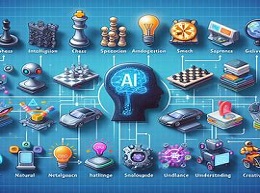Meta-Learning: Improving Model Adaptability and Generalization

Meta-Learning
In the ever-evolving landscape of artificial intelligence (AI), the ability of models to adapt and generalize to new tasks and environments is crucial. Meta-learning, a burgeoning field within machine learning, aims to address this challenge by enabling models to learn how to learn. In this article, we'll delve into the concept of meta-learning, its principles, techniques, and the impact it has on improving model adaptability and generalization.
Understanding Meta-Learning
Meta-learning, also known as learning to learn, focuses on developing algorithms that can quickly adapt to new tasks or environments with minimal training data. At its core, meta-learning involves training models on a diverse range of tasks or datasets, allowing them to extract generalizable patterns and knowledge that can be applied to novel scenarios.
Types of Meta-Learning
-
Model-Agnostic Meta-Learning (MAML): MAML is a popular meta-learning approach that optimizes model parameters to facilitate rapid adaptation to new tasks. By iteratively updating model parameters across multiple tasks, MAML enables models to learn generalized representations that can be fine-tuned for specific tasks with minimal data.
-
Reinforcement Learning with Recurrent Neural Networks (RL^2): RL^2 is a meta-learning framework that leverages reinforcement learning techniques to train agents capable of learning and adapting to new tasks through interactions with the environment. RL^2 agents learn a policy that enables them to quickly adapt their behavior to achieve optimal performance on unseen tasks.
-
Metric-Based Meta-Learning: Metric-based meta-learning methods focus on learning a metric space where the similarity between tasks or examples can be measured. By embedding tasks or examples into a shared metric space, models can generalize across tasks by leveraging similarities between them.
Improving Model Adaptability
Meta-learning enhances model adaptability by enabling them to quickly adapt to new tasks or environments with minimal supervision. This adaptability is particularly valuable in scenarios where labeled training data is scarce or where tasks change rapidly over time.
Enhancing Generalization Performance
Meta-learning improves model generalization performance by capturing higher-level patterns and knowledge that are transferable across tasks. By learning from diverse sets of tasks during meta-training, models develop a more robust understanding of underlying task structures, leading to improved performance on unseen tasks.
Real-World Examples of Meta-Learning
-
Few-Shot Image Classification: Meta-learning techniques have been successfully applied to few-shot image classification tasks, where models are trained to quickly adapt to new classes with only a few labeled examples per class. For example, in the Meta-Dataset project, researchers demonstrated significant improvements in few-shot learning performance by meta-training models on a diverse range of image classification tasks.
-
Adaptive Reinforcement Learning: Meta-learning approaches have also been applied to reinforcement learning tasks, where agents learn to adapt their policies to new environments or tasks. For instance, in the Meta-World framework, agents are trained on a variety of robotic manipulation tasks, enabling them to quickly adapt to new tasks with minimal additional training.
-
Natural Language Processing: In the field of natural language processing (NLP), meta-learning techniques have shown promise in tasks such as text classification, sentiment analysis, and language modeling. By meta-training models on diverse text classification tasks, for example, researchers have demonstrated improved performance on new classification tasks with limited labeled data.
Challenges and Future Directions
While meta-learning holds great promise for improving model adaptability and generalization, several challenges remain. These include scalability issues, sample efficiency, and the need for more effective meta-learning algorithms. Future research directions include exploring hierarchical meta-learning approaches, incorporating memory-augmented architectures, and addressing ethical considerations surrounding meta-learning applications.
Meta-learning represents a paradigm shift in the field of machine learning, offering a pathway towards models that can rapidly adapt to new tasks and environments. By leveraging meta-learning techniques, AI systems can become more flexible, resilient, and capable of tackling a wide range of real-world challenges. As research in meta-learning continues to advance, we can expect to see increasingly sophisticated models that push the boundaries of adaptability and generalization in AI.














